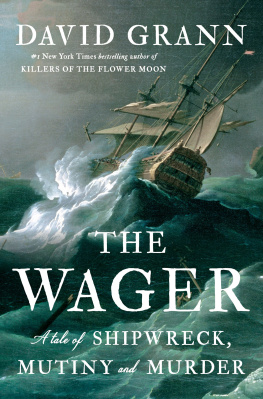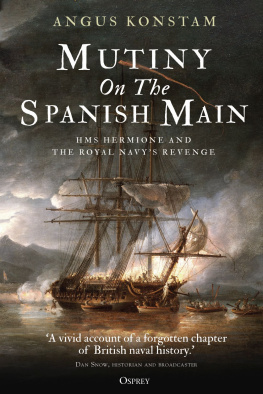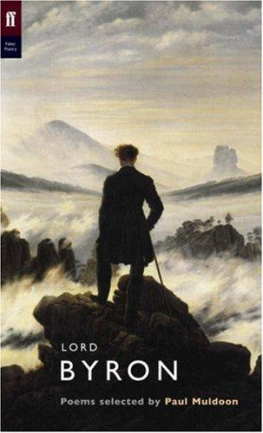John Byron - Byrons Narrative of the Loss of the Wager
Here you can read online John Byron - Byrons Narrative of the Loss of the Wager full text of the book (entire story) in english for free. Download pdf and epub, get meaning, cover and reviews about this ebook. year: 2014, publisher: Duke Classics, genre: Home and family. Description of the work, (preface) as well as reviews are available. Best literature library LitArk.com created for fans of good reading and offers a wide selection of genres:
Romance novel
Science fiction
Adventure
Detective
Science
History
Home and family
Prose
Art
Politics
Computer
Non-fiction
Religion
Business
Children
Humor
Choose a favorite category and find really read worthwhile books. Enjoy immersion in the world of imagination, feel the emotions of the characters or learn something new for yourself, make an fascinating discovery.
- Book:Byrons Narrative of the Loss of the Wager
- Author:
- Publisher:Duke Classics
- Genre:
- Year:2014
- Rating:4 / 5
- Favourites:Add to favourites
- Your mark:
- 80
- 1
- 2
- 3
- 4
- 5
Byrons Narrative of the Loss of the Wager: summary, description and annotation
We offer to read an annotation, description, summary or preface (depends on what the author of the book "Byrons Narrative of the Loss of the Wager" wrote himself). If you haven't found the necessary information about the book — write in the comments, we will try to find it.
In 1741, the HMS Wager wrecked in an uninhabited area off the coast of Chile. In the aftermath of the disaster, chaos took hold. One faction of the surviving crew rose up against the officers of the ship and attempted to make their way to a Chilean city in a rickety boat. In this volume, Royal Navy officer John Byron presents his version of the mutiny.
Byrons Narrative of the Loss of the Wager — read online for free the complete book (whole text) full work
Below is the text of the book, divided by pages. System saving the place of the last page read, allows you to conveniently read the book "Byrons Narrative of the Loss of the Wager" online for free, without having to search again every time where you left off. Put a bookmark, and you can go to the page where you finished reading at any time.
Font size:
Interval:
Bookmark:

First published in 1768
ISBN 978-1-62013-793-2
Duke Classics
2014 Duke Classics and its licensors. All rights reserved.
While every effort has been used to ensure the accuracy and reliability of the information contained in this edition, Duke Classics does not assume liability or responsibility for any errors or omissions in this book. Duke Classics does not accept responsibility for loss suffered as a result of reliance upon the accuracy or currency of information contained in this book.
Byron's Narrative of the Loss of the Wager
With an Account of the Great
Distresses Suffered by Himself and His Companions
on the Coast of Patagonia from the Year 1740 till
Their Arrival in England 1746
At a time when every thing connected with the name of Byron is regardedwith such general interest, it is a subject of surprise and regret thatno popular edition should exist of the Narrative of Commodore Byron.Indeed, to procure any copy at all of the work requires some researchand trouble. To supply this deficiency is the object of the presentpublishers.
To the admirers of the illustrious Poet, the Narrative of thesufferings of his grandfather will, on more than one account,be acceptable. In the Poems, it is often, whether humorously orpathetically, alluded to; for instance, in the mournfully beautifulstanzas to his sister, written soon after he left England for the lasttime, he says,
"A strange doom is thy father's son's, and past
Recalling, as it lies beyond redress;
Reversed for him our grandsire's fate of yore,
He had no rest at sea, nor I on shore!"
Again, in a different mood, in Don Juan, after having carried his herothrough the horrors of a shipwreck, as disastrous and fatal in itselfand its consequences as his imagination could conceive, he observes
"for none
Had suffered morehis hardships were comparative
To those related in my grand-dad's Narrative."
To which passage he appends the following note:"Admiral Byron wasremarkable for never making a voyage without a tempest. He was knownto the sailors by the facetious name of 'foul-weather Jack.'" Indeed,to this narrative the poet is indebted for many of the incidents inthat surpassing description of "the dangers of the sea." The awful"whispering" in which, according to the Admiral, the men communicatedtheir first horrid thoughts of putting one of their number to death forthe support of the rest, is admirably preserved and amplified in DonJuan:
"At length one whispered his companion, who
Whispered another, and thus it went round,
And then into a hoarser murmur grew,
An ominous and wild, and desperate sound,
And then his comrade's thought each sufferer knew,
'Twas but his own, suppressed till now, he found:
And out they spoke of lots for flesh and blood,
And who should die to be his fellow's food."
The germ of the conception of the cave-scenes, so beautifully describedin the poem, will also be found here; the fondness of Juan for hisfavourite dog, the voracity with which he devoured the long-withheldfood, and many other incidents, were suggested by this Narrative.
To those who would study the character of Lord Byron; discover whatqualities of his nature were derived from his ancestors, and what werepeculiarly his own; who would trace the effect produced on his writingsby early tastes, habits, and associations, the narrative will affordample material for observation.
Mr. Moore,who, in paying to genius that tribute which genius alonecan fully pay, has shewn how thoroughly he understood the characterof the poet (a character, perhaps, after all to be felt rather thanexplained), how well he appreciated his virtues and the peculiarcircumstances attendant on genius, which palliate, if they do notexcuse, his foibles,remarks, that Lord Byron "strikingly combined,in his own nature, some of the best and perhaps worst qualities thatlie scattered through the various characters of his predecessors;the generosity, the love of enterprise, the high-mindedness of someof the better spirits of his race, with the irregular passions, theeccentricity, and daring recklessness of the world's opinion, that somuch characterised others." In the character then of the most famousof those "better spirits," as exemplified in his own narrative of hissufferings and adventures, we may discern the source of many of theamiable qualities which descended to and adorned the immortal poet.We shall observe in both the same frankness, generosity, affability,love of excitement, the same mildness, and unassuming modesty. Butthe contrasts of their characters we shall find even more strikingthan the resemblances. We shall see in the sailor the ease andcontentedness of spirit arising from its agreement with the sphereit moves inthe soul harmonizing with the situationthe man withthe circumstancesthe Supply equivalent to the Demand. We shall seein the poet the "high instincts of a creature moving about in worldsnot realized"the large expectancies, the high anticipations,unfulfilled and unanswered; the discontent, the jarring of a being notat one with the place of its existence, panting for something aboveit, aspiring "beyond the fitting medium of desire." We shall see himinordinately yearning after affection and happiness, yet enveloped,as it were, in a nervous network of sensibility, feelingly alive toevery the faintest manifestation of slight, neglect, unkindness,toall that causes sorrow and pain: we shall see the co-existence ofthese qualities producing necessarily disappointment and disgust; thevery capability of enjoying the good, unfitting him for the enduranceof the ill; the power of imagination heightening the beauties of theideal, the keenness of perception aggravating the defects of the real;the consequent struggles for existence in a wounded spirit between"feelings unemployed," affections unreturned, and the bitternessor apathy they engenderbetween original benevolence and acquiredmisanthropy. We shall see the sailor habitually yielding himself tothe guidance and authority of others, unhesitatingly acknowledging,and, as a matter of course, complying with, the established relations,laws, and customs of society; submitting without repining, question,or surprise, to the vicissitudes of fortune; patient of hardship,uncomplaining of Circumstance. The poet, from the pride of Mind,accustomed ever to decide for itself, to act and reflect always,obstinately questioning even Destiny and Fate; bidding haughtydefiance to their Ruler, or yielding with sullen indifference orgloomy repining; if confessing the necessity of compliance, hardlyresigned. We shall find the sailor sustaining his cheerfulness inevery situation; the poet, plunging, perhaps from constitutionalmelancholy, into misery; acted upon by that strong attraction, thatirresistible impulse towards the dark and the sad, that capability,strikingly described by himself, of "learning to love despair." Weshall see throughout the difference between the continual presence andthe comparative absence of consciousness, that power by which Self,rising as it were above itself, makes itself the subject of microscopicobservation. In the writings especially, of each, we shall observethe operations of these opposite properties. The sailor writes on,unaware and thoughtless of the effect of what he writes: the poet,in his letters particularly, seems to know intuitively the effect onothers of every word he sets down; he reads their thoughts, he hearstheir remarks as he writes; and this knowledge, so immediate that itseffects on his style seem almost unintentional, continually modifieshis expressions, giving the appearance of affectation to what isno more than a natural result of his quick perception and extremesensitiveness. In every action, too, of the poet, important or trivial,the working of this principle, so hard to be discovered in the sailor,is equally evident. He looks always to the effect: nothing seems donesolely for itself: the love of admiration, of being remarkable, ofstanding alone, however disguised, may almost always be detected.Finally, we shall not fail to observe throughout, the contrastbetween the single and the "many-sided" mind; between the ordinaryand the extraordinary; between the Mortal made immortal by force ofcircumstances; the Immortal, in spite of circumstances, asserting andmaintaining his inborn immortality.
Font size:
Interval:
Bookmark:
Similar books «Byrons Narrative of the Loss of the Wager»
Look at similar books to Byrons Narrative of the Loss of the Wager. We have selected literature similar in name and meaning in the hope of providing readers with more options to find new, interesting, not yet read works.
Discussion, reviews of the book Byrons Narrative of the Loss of the Wager and just readers' own opinions. Leave your comments, write what you think about the work, its meaning or the main characters. Specify what exactly you liked and what you didn't like, and why you think so.










